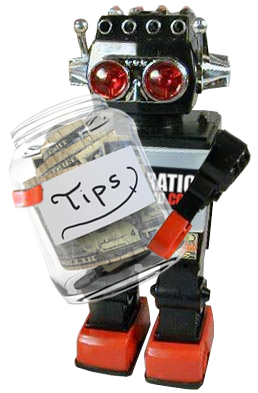Travel
Related: About this forumAny recommendation for translators, ATM cards, how to carry credit cards and passports safely? nm
Turbineguy
(39,033 posts)rhett o rick
(55,981 posts)Lydia Leftcoast
(48,221 posts)In Scandinavia and the Netherlands, nearly everyone speaks English remarkably well. (In Scandinavia, speaking two foreign languages is totally normal. They start English in first grade and a second language in fifth grade. I've heard that Dutch schools require three languages, usually English, French, and German.) Just say "Excuse me," or "Hello" before you start talking, to give them a chance to make the mental adjustment.
In other countries, just learn how to say, "Do you speak English?" in the local language. If the person you are talking to doesn't speak English, they can almost always find someone who does.
For emergencies, get a Berlitz pocket phrasebook for each country. If you don't want to venture pronouncing a foreign language, just point. The advantage of the Berlitz books is that they have a list of possible answers that the local person can point to.
One thing you may not have considered about apps: Using your phone's cellular data in a foreign country costs two arms and two legs, and even if you have a plan that supposedly includes foreign data, it may be limited to 2G. When I travel overseas, I turn the cellular data off and just use my hotel's wi-fi or any other wi-fi I can find.
But don't worry too much about language, even in countries where no one speaks English.
My family took an extended trip to Europe in the late 1960s. One night, we arrived in a Danish town where all the hotels were full, but there was a kiosk at the train station where you could find rooms in a B&B. We ended up in an old house full of antiques run by an old lady with a little dog. In those days, most old people in Scandinavia didn't speak English, so we communicated with gestures and numbers. For example, she pointed to all of us, as if counting us off one by one and wrote down a total price. My parents nodded agreement. Then she made eating and drinking motions and pointed to the number "eight" on the clock, which we immediately understood to mean that breakfast would be at 8:00. Then she motioned for us to follow her upstairs, where she pointed out the bedrooms and bathroom and how the shower worked. At breakfast the next morning, other gestures and raised eyebrows communicated what we wanted to drink and whether we wanted more food. It's amazing what gestures and numbers can communicate when you don't have to convey deep thoughts.
Lydia Leftcoast
(48,221 posts)Before you leave the country, tell your card issuer your travel dates and where you are going. Otherwise, you may find your card blocked.
Card issuers monitor accounts for any transactions that are outside your normal pattern and may block them. This can be disastrous if you've just arrived in a foreign country and can't use your card.
rhett o rick
(55,981 posts)time I made small charges with my credit card, no problem. When it came time to leave for the airport, I tried to use my credit card for the stay and it was blocked. I had a hell of a time getting a hold of the right person to straighten it out. I didn't know at the time what the phone number for my credit card customer service that could be used out of country.
rhett o rick
(55,981 posts)I have credit cards with chips but haven't gotten a PIN with them. Do you know anything about this?
Lydia Leftcoast
(48,221 posts)even before the chip-and-PIN system. They can be used for cash advances at an ATM.
But since Americans rarely use PINs otherwise, you may have ignored or forgotten yours. Ask your bank or card issuer. Usually the PIN continues from your previous card or is sent separately.
Sancho
(9,144 posts)sinkingfeeling
(55,202 posts)rhett o rick
(55,981 posts)sinkingfeeling
(55,202 posts)rhett o rick
(55,981 posts)
Kick in to the DU tip jar?
This week we're running a special pop-up mini fund drive. From Monday through Friday we're going ad-free for all registered members, and we're asking you to kick in to the DU tip jar to support the site and keep us financially healthy.
As a bonus, making a contribution will allow you to leave kudos for another DU member, and at the end of the week we'll recognize the DUers who you think make this community great.